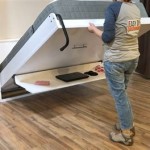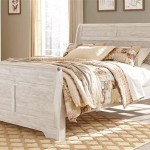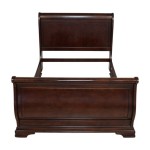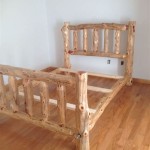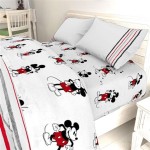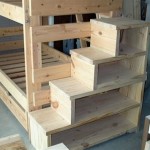Which Wood Is Best For Bed Slats?
Bed slats provide crucial support for mattresses, influencing both comfort and longevity. Selecting the correct type of wood for these slats is essential for ensuring adequate support and durability. Several factors, including wood strength, flexibility, and cost, should be considered when making a selection.
Pine: Pine is a commonly used wood for bed slats due to its affordability and widespread availability. It's a softwood, meaning it comes from coniferous trees. While generally adequate for supporting lighter mattresses and individuals, pine’s softer nature can make it susceptible to warping or breaking under heavier loads over time. It’s a suitable option for budget-conscious consumers, children’s beds, or guest rooms used infrequently.
Spruce: Another softwood option, spruce, offers similar characteristics to pine. It's lightweight and relatively inexpensive. Spruce is slightly stronger than pine, providing a marginally better support system. However, it still falls within the softwood category and may not be the ideal choice for heavier mattresses or individuals.
Fir: Fir is a moderately strong softwood that provides better support than pine or spruce. It's known for its straight grain and resistance to splitting, making it a more durable option within the softwood category. While more expensive than pine or spruce, fir offers a good balance between cost and performance for those seeking a slightly more robust slat system.
Cedar: Cedar is prized for its natural aroma and insect-repelling properties, making it a popular choice for furniture. While it offers moderate strength and durability, cedar is typically more expensive than other softwoods. Its aromatic qualities can be a benefit for individuals sensitive to dust mites or other allergens. However, the scent may be overpowering for some.
Redwood: Redwood shares similar properties with cedar in terms of insect resistance and a pleasant aroma. It is also naturally resistant to decay and rot, adding to its durability. Redwood is typically more expensive than cedar and other softwoods, but its longevity and natural resistance to pests make it a worthwhile investment for those seeking a premium option.
Plywood: Plywood isn't a solid wood but rather a manufactured wood product made from thin layers of wood veneer glued together. It's often used for bed slats due to its affordability and consistent strength. The layered construction of plywood provides good support and resistance to warping. However, lower-quality plywood can be susceptible to delamination over time, especially in humid environments.
Hardwoods: Hardwoods offer superior strength and durability compared to softwoods. They come from deciduous trees and are denser, making them more resistant to bending and breaking. While generally more expensive, hardwoods provide excellent support for heavier mattresses and individuals.
Maple: Maple is a strong and durable hardwood known for its resistance to wear and tear. It’s a popular choice for high-quality furniture and flooring. Maple slats provide excellent support and are less likely to warp or break over time. However, maple is a more expensive option compared to softwoods or plywood.
Oak: Oak is another popular hardwood known for its strength and beautiful grain patterns. It’s highly durable and resistant to warping and splitting. Oak slats provide excellent support for heavier mattresses and individuals. While more expensive than softwoods, oak offers exceptional longevity and a classic aesthetic.
Cherry: Cherry is a premium hardwood known for its rich color and elegant appearance. It offers excellent strength and durability, making it a suitable choice for bed slats. Cherry is more expensive than other hardwoods like maple or oak, but its aesthetic appeal makes it a desirable option for those seeking a high-end look.
Ash: Ash is a strong and resilient hardwood with good shock absorption properties. This makes it a comfortable and supportive choice for bed slats. Ash is typically less expensive than cherry, maple, or oak, offering a good balance between cost and performance.
Beech: Beech is a durable hardwood with excellent bending strength, making it a suitable choice for curved or shaped bed slats. It offers good support and resistance to wear and tear. Beech is generally more expensive than softwoods but can be a more affordable hardwood option compared to cherry or maple.
Considerations Beyond Wood Type: The thickness and width of the slats also play a crucial role in their supportive capabilities. Thinner slats, regardless of wood type, will flex more under pressure. Wider slats provide more surface area for weight distribution. The spacing between slats is also important. Closer spacing provides more uniform support and prevents the mattress from sagging between the slats. Consulting the mattress manufacturer’s recommendations for slat spacing and thickness is crucial for optimal performance and warranty validity.
Sustainability: When selecting wood for bed slats, considering the source and sustainability of the wood is important. Look for certifications such as Forest Stewardship Council (FSC) certification, which indicates that the wood comes from responsibly managed forests. Choosing sustainably harvested wood helps to protect forests and ensure their long-term health.

Bed Slats Vs Plywood Which Is Best For Your Frame

Bed Slats Woodworker S Journal How To

Which Bed Slats Are Best

Best Wood For Bed Slats Boost Support And Comfort

Beech Sprung Slats Vs Solid Pine Natural Bed Company

Wooden Bed Slats All Types Of Available

Sprung Beech Slats Information Natural Bed Company

Are Sprung Slats Better Than Rigid Understanding Beds

Beech Sprung Slats Vs Solid Pine Natural Bed Company

What Size Boards Are Used For Bed Slats Quora
